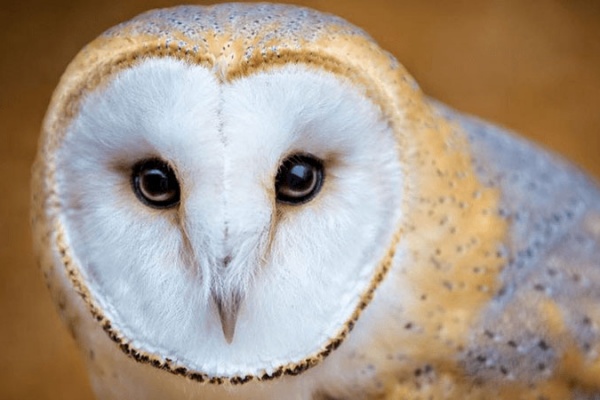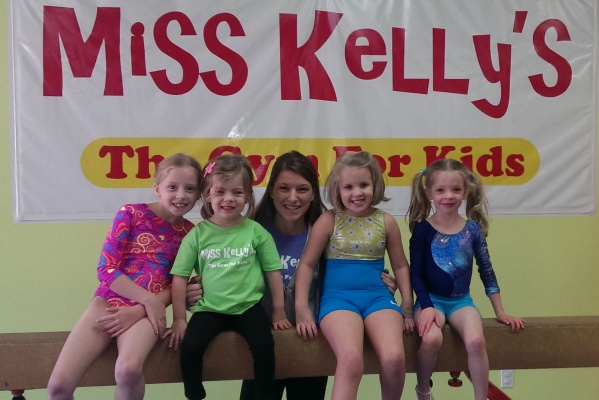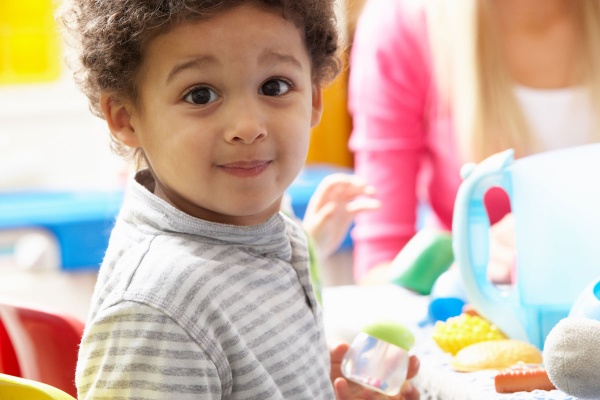
Breastfeeding in Public: Why Does It Still Make Headlines?
Any mom who has breastfed knows that, well, it's not as easy as it looks. In the earliest stages there can be problems with your baby latching on. It takes an enormous time commitment (on top of everything that is new parenthood). It's difficult to breastfeed if you are going back to work (you'll have to pump, and some workplaces still don't have adequate facilities for pumping moms). And you likely won't sleep for more than three hours at a time for as long as you're doing it.
as it looks. In the earliest stages there can be problems with your baby latching on. It takes an enormous time commitment (on top of everything that is new parenthood). It's difficult to breastfeed if you are going back to work (you'll have to pump, and some workplaces still don't have adequate facilities for pumping moms). And you likely won't sleep for more than three hours at a time for as long as you're doing it.
And those are just the practical concerns. Add in society's seemingly endless enthusiasm for judging new and seasoned moms for breastfeeding in public, and you've got the potential for causing some serious pearl-clutching, even if you don't end up on the cover of a national magazine because you dare to breastfeed your toddler, or make headlines because, horror of horrors, you fed your hungry baby in public.
But given all of this, breastfeeding moms are a resilient bunch, and that's a good thing. The rewards of nursing to mom and baby are significant.
According to the American Academy of Pediatrics (AAP), breast milk contains antibodies that protect infants from bacteria and viruses. Breastfed children have fewer ear, respiratory and urinary tract infections and have diarrhea less often. Infants who are exclusively breastfed tend to need fewer health care visits, prescriptions and hospitalizations resulting in a lower total medical care cost compared to never-breastfed infants.
Breastfeeding also provides long-term preventative effects for the mother, including an earlier return to pre-pregnancy weight and a reduced risk of pre-menopausal breast cancer and osteoporosis.
The AAP recommends that infants be exclusively breastfed for about the first 6 months of life. So, yes, it's very healthy for your baby, and that's reason enough to give it a try. But there's also the fact that breastfeeding is an incredible bonding experience for mother and baby. The quiet times that you and your baby spend breastfeeding are often some of the best memories of new motherhood.
So, why are less than 15 percent of new moms still breastfeeding their babies after 6 months?*
"Research shows that a lot of mothers who want to breastfeed their babies don't get the information and support they need to do so successfully," says Holly Robinson, president of La Leche League of Greater St. Louis, the non-profit group organizing World Breastfeeding Week events in St. Louis.
"World Breastfeeding Week St. Louis gives local parents the opportunity to meet and socialize with other breastfeeding families throughout the area, as well as expand their breastfeeding and parenting knowledge so that they can successfully meet their individual breastfeeding goals," Robinson adds.
to meet and socialize with other breastfeeding families throughout the area, as well as expand their breastfeeding and parenting knowledge so that they can successfully meet their individual breastfeeding goals," Robinson adds.
In addition to celebrating the many benefits of breastfeeding, World Breastfeeding Week events include seminars on breastfeeding during your baby's different developmental stages, breastfeeding beyond the first year, comfortably breastfeeding in public, nutrition and fertility, and playdates for kids.
One of the seminar topics that caught my eye covers how to "gracefully" respond to family, friends and strangers who feel the need to comment on your choice to feed your baby in a public place. Because even though a simple "He's hungry," should suffice, it often doesn't.
Maybe it's because women's parenting choices are seemingly fair game to the glaring eyes of strangers, friends. extended family, co-workers. fellow shoppers in the supermarket, etc. You get the picture. Everyone has an opionion, and when it comes to — gasp! — the human breast, I mean everyone.
Perhaps it's the breasts-are-sex-objects mentality that makes it difficult for some to view them in any other way (as in, their biological purpose). As a believer that babies should not have to forego their favorite hitching post because their moms decide to grab lunch as well, making others comfortable with public breastfeeding isn't my first priority, but a graceful response, at least initially, can't hurt.
Besides, if you have to bring out the big guns, you can note that 45 states, including Missouri and Illinois, have laws that specifically allow women to breastfeed in any public or private location.
World Breastfeeding Week is coming up fast in St. Louis. So whether you're currently breastfeeding, plan to breastfeed or just want to learn more about how to support breastfeeding moms, check out the list of events, starting with the workshop: Breastfeeding and Parenting: Making it Work, set for Sept. 29 at the River Camp Conference Center at the Saint Louis Zoo. (Register by Sept. 19.).
Additional events continue through October 4. More information is available at the La Leche League of Greater St. Louis web site: www.lllstl.org
___________________________________________________________________________

Julia Bollman is Publisher of St. Louis Kids Magazine and contributer to SmartParenting
Alyssa Garner Chirco contributed information for this story.
*Source: CDC: Centers for Disease Control and Prevention
Photos: iStock





















